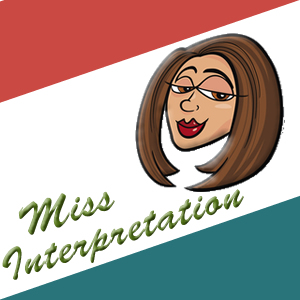The Skills of Basic Communication
If your search engine has brought you here in a quest for the Four Basic Communication Skills then here they are:
- Speaking
- Listening
- Reading
- Writing
There you go! On to your next mission, information gatherer! If, however, you’ve just been browsing around the Web or have been checking out some of the other pages on the site and wound up here, let’s take this discussion a little deeper, shall we?
When I think about communication, the first thing that comes to my mind is message, that ceaseless process accosting us and driving us at every moment of our lives, even in our sleep. The brilliance of our consciousness allows us to filter out that which we deem unimportant. In other words, we choose what messages we allow ourselves to receive – at least for the most part. It’s debatable whether we can choose our dreamtime messages, and it’s also up for debate as to whether we choose to allow messages sent to us by the neighbor’s barking dog or by the commercials embedded within our favorite shows.
When I think of the term “communication skills,” I think about the optimization of our facilities of communication in order to receive or send messages with ultimate effectiveness. When we think of sending and receiving messages, I obviously think about the four aforementioned basic interpersonal communication skills: speaking, listening, reading, & writing.
Speaking
 The role of speaking in regard to the communication process is sometimes over-emphasized. In humans, this is our primary and mode of messaging because of its efficiency. As with all modes of communication, it is vulnerable to the guiles of the Master Communicator’s arch-enemy – misinterpretation. We need to realize, therefore, that it’s not only what is being said that’s important, but how it’s being said as well. Word choice, accuracy, specificity, intonation, speed, volume, inflection, emphasis, and more all play a role in a message’s successful reception. Man, that’s a lot to remember. Can’t we just say it?
The role of speaking in regard to the communication process is sometimes over-emphasized. In humans, this is our primary and mode of messaging because of its efficiency. As with all modes of communication, it is vulnerable to the guiles of the Master Communicator’s arch-enemy – misinterpretation. We need to realize, therefore, that it’s not only what is being said that’s important, but how it’s being said as well. Word choice, accuracy, specificity, intonation, speed, volume, inflection, emphasis, and more all play a role in a message’s successful reception. Man, that’s a lot to remember. Can’t we just say it?
Listening
Countless books and articles have been written and lectures given related to the skill of listening. Out of the four basic skills we’ve mentioned, listening is the one we do most. The challenging part about the act of listening is that we seem to be constantly battling our refined filtering system while we are trying to determine whether the information being sent to us is important or not. Unlike the other skills, the input we receive through our ears is almost constant, and we must choose to either hear or actually listen; the former being passive and the latter active. It takes actual effort to listen and it takes work be an effective listener. Click here for our article on The Art of Listening to learn a few simple techniques you can adopt that will make you a really great listener. As I’ve done in previous articles, I advise you to be effective, rather than efficient when you are listening. Noise is the greatest challenge to listening; the literal, external noise in our local environment, and the noise in our heads continually asking us whether this is important or not.
Reading
The last two skills, reading and writing, comprise the smallest portion of our communicating lives. When you come down to it (and don’t tell any of my students I said this), you don’t really need them, at least not on a basic level. They are considered more of a higher level of communicating. To satisfy an immediate necessity – say, if the house is on fire – you’re not going to jot down a note unless you’ve lost your ability to speak. Even if you couldn’t speak, you’d probably resort to a non-verbal jumping up and down or physical pushing rather than writing something. I suppose reading and writing, if placed on Maslow’s Hierarchy of Needs, would belong in the top two levels. We can say that they’re not necessary for basic communication, but they allow our communication to extend to higher level of self-development. The more effective reader should be able to interpret higher level concepts. Readers encounter elements of internal and external noise similar to listeners. There is a degree of filtering that goes on here as well as there is a distinction between looking and seeing. Actual reading takes our perception up another level to cognition.
Writing
Writing is comprises the least amount of communicating that we do as humans. Like reading, it is a higher level skill. As listening equates to reading, writing equates to speaking in the sense that it is a form of transmitting information. Like speaking, writing is prone to misconstruction and care must be taken to follow the rules of language. Word choice and word order are also vital for clarity in writing. Tone in writing is more ambiguous than in the spoken word and can therefore be more easily misinterpreted.
Those are your traditionally accepted basic communication skills. We’re going to take these skills to the next level in future articles. If that promise interests you, you definitely want to check out the article on Conscious Communication.
—-
Get Paid to Write
Turn the writing skills you already have into a highly-paid recession-proof profession …working part time! You’re already a writer. Find out how you can earn $100 to $150 per hour from this little-known lucrative profession.












Good